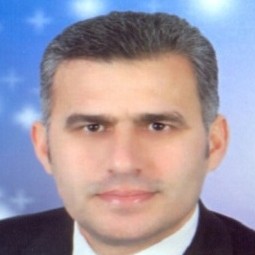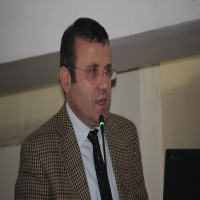Research Article
Aim & Scope
Science area
Our journal contains original scientific publications. All published articles, except book reviews, interview-type studies, and editorial studies, are subject to double-blind peer review process.
Aim & Scope
The aim of the journal is to contribute to the advancement of science through the publication of high-quality papers of scientific importance. In this context, our journal publishes original and translated articles, research notes, symposium/book/thesis evaluations, critical editions, simplifications, and other works from all fields of social sciences such as History of Islamic Sects, Theology, Tafsir, Hadith, Law, History, Political Science, Economics, International Relations, etc. related to Ithnāʿashariyya (Twelver Shīʿīsm), Zaydism, Ismāʿīlīsm and other Shīʿīte sects. Our journal is an independent, double-blind peer-reviewed, open access that aims to publish articles in all fields related to Shīʿīsm. Articles should describe original data that have not been previously published or submitted for publication elsewhere. Manuscripts deemed suitable for our journal's article submission rules and the scope of the journal are sent for scientific evaluation to at least two reviewers who are experts in their fields after the editorial review. Members of the Turkish Journal of Shiite Studies Editorial Board take into account the comments of the reviewers regarding each submission. The final decision for all submitted manuscripts belongs to the Editor. The Editorial Board of the Turkish Journal of Shiite Studies undertakes to comply with the criteria of the International Council of Medical Journal Editors (ICMJE), the World Association of Medical Editors (WAME), and the Committee on Publication Ethics (COPE).
Subject Category
Humanities: Religious Studies
Social Sciences: Cultural Studies
International Relations
Psychology
Sociology
Public administration
Language of Publication
Full-Text Publication Language:
• Primarily Language: Turkish
• Secondary Language: English
Content is written in English and Latin Alphabet:
• Article title: Turkish & English
• Author name: Turkish (in Latin Alphabet)
• Author address: Turkish (in Latin Alphabet)
• Keywords: Turkish & English
• Bibliography: Turkish (in Latin Alphabet)
Full Text: Turkish (in Latin Alphabet)
Manuscripts Submissions
Submitted articles must be in accordance with the purpose and scope of the journal. Original, previously unpublished manuscripts that are not under evaluation in another scientific publication organ and whose content and submission have been approved by the author are accepted for evaluation.
More than one article application from one author in the same period is not accepted.
The article acceptance date for the June issue of our journal is 1 December-31 May, and for the December issue, 1 June-30 November. Articles submitted after the deadlines will not be accepted for the relevant issue and will be evaluated for the next issue.
Article types
Original and translated articles, symposium/book/thesis evaluations, research notes, reviews, critical editions, and simplifications.
Audience
The academic level of the published papers is appropriate for academicians, researchers, graduate students, and related academic institutions and organizations.
Article Processing Charge
The publication of articles and the execution of article processes in the journal are free of charge. No processing fee or submission fee is charged under any other names As part of its publication policies, the Turkish Journal of Shiite Studies does not accept sponsorship or advertisements. All expenses of the Turkish Journal of Shiite Studies are covered by the publisher.
Copyright Agreement
The copyrights of the studies published in the Turkish Journal of Shiite Studies belong to their authors. The authors allow the intellectual work they submitted to be published by the Turkish Journal of Shiite Studies under a Creative Commons Attribution-NonCommercial 4.0 International license (CC BY-NC 4.0).
Originality of Manuscripts
Turkish Journal of Shiite Studies does not want to publish material that has already appeared in full elsewhere. But we sometimes accept articles that have already appeared in foreign language journals
Key Words:
Islamic Sect, Shīʿa, Shiʿism, Twelver Shiʿism, Zaydism, Ismāʿīlīsm.
Readership:
Academic level of published articles; It is suitable for academics, researchers, graduate students and related academic institutions and organizations.
Author Guidelines
Manuscript Preparation
Language: Turkish and English
The language of the articles is Turkish and English
Types of Article: Research Articles, Case Reports, Interviews, and Book Reviews
However, we advise the authors to make the work as concise as possible for dissemination.
Article Format: Word
Image Format: JPEG
Citation Style: The ISNAD Citation Style Footnote Format
Changes to Authorship
Author changes are only processed before the manuscript is accepted. Authors are expected to carefully review the list and order of authors before submitting their manuscript and to provide the definitive list of authors at the time of original submission.
Citation Style
Articles should be prepared according to the ISNAD Citation Style Footnote Format
https://www.isnadsistemi.org/
Submission checklist
It is hoped that this list will be useful during the final checking of an article before sending it.
1. Author information added.
E-mail address
Full mailing address
Phone number
2. In studies with more than one author, the contribution rate/area statement of the researchers was added.
All necessary files have been uploaded
Article text
The manuscript has been "spellchecked" and "grammar-checked"
All references mentioned in the Reference list are cited in the text, and vice versa.
Submit Manuscript
The account of the corresponding author of the manuscript should be used in the applications. All correspondence regarding the application is forwarded to the responsible author via e-mail sent through the journal system.
When uploading the file of the main text of the article, make sure that this file does not contain any elements that decipher the identity of the author, due to the double-blind peer review process.
Files You Need To Download Separately:
1. Manuscript Full Text
During the submission, the following commitment is received from the author in electronic form:
1. I am authorized/authorized by co-authors to submit this work to your journal.
2. The article is original, has not been officially published in another peer-reviewed journal, has not been reviewed by any other journal, and does not infringe any existing copyright or other third-party rights.
3. I/we agree that if the article is editorially accepted for publication, it will be licensed under a Creative Commons Attribution-NonCommercial 4.0 International (CC BY-NC 4.0) license.
4. Copyright and intellectual property rights of the author(s) or employer(s) of the author(s), if any, are reserved. The author(s) undertake(s) that the publisher is not responsible for any claims or lawsuits to be filed by third parties due to copyright infringement, and that all responsibility belongs to them.
5. The author(s) undertake(s) that there is no criminal or illegal statement in the article, and that no illegal materials and methods are used while conducting the research.
Keeping track of your submission
You can keep track of your manuscript throughout the process by going to your author area in Journal System. Here it will list for you manuscripts you have submitted under "Submitted manuscripts". If your manuscript is sent for external peer review, you will find reviewers' comments in the decision letter. Please click on "Manuscripts with the decision" and click on "View decision letter."
Ethical Principles and Publication Policy
Publication Ethics Principles
Publication Ethics can be defined as a self-regulatory mechanism that insists on honesty on behalf of authors, reviewers, and publishers to establish higher standards of editorial use. Ethical standards for publication exist to ensure high-quality scientific publications, public trust in scientific findings, and respect for people's views.
• Honest researchers do not plagiarize.
• It does not show the wrong source.
• They do not hide objections that they cannot refute.
• They do not distort opposing views.
• They do not destroy or hide data.
Peer-reviewed studies are studies that support and apply the scientific method. In this respect, it is of great importance that all parties involved in the publication process (authors, readers, researchers, publisher, referees, and editors) comply with ethical principles. The Journal of Turkish Shiite Studies adheres to national and international standards in research and publication ethics. It complies with the Press Law, the Law on Intellectual and Artistic Works, and the Scientific Research and Publication Ethics Directive of Higher Education Institutions. It has adopted the International Ethical Publishing Principles published by the Turkish Journal of Shiite Studies, Committee on Publication Ethics (COPE), Directory of Open Access Journals (DOAJ), Open Access Scholarly Publishers Association (OASPA) and World Association of Medical Editors (WAME). ). It also undertakes to comply with the Decisions of the Editors' Workshop of Turkey.
Press Law (National Legislation) ( https://www.mevzuat.gov.tr/mevzuatmetin/1.5.5187.pdf )
• Law on Intellectual and Artistic Works (National Legislation) ( https://www.mevzuat.gov.tr/mevzuatmetin/1.3.5846.pdf )
• Higher Education Institutions Scientific Research and Publication Ethics Directive (National Legislation) ( https://www.yok.gov.tr/Sayfalar/Kurumsal/mevzuat/bilimsel-arastirma-ve-etik-yonetmeligi.aspx )
• Transparency and Best Practice in Academic Publishing (International Criteria) ( https://doi.org/10.24318/cope.2019.1.12 )
• Turkey Editors' Workshop Decisions (National Criteria) ( https://editorlercalistayi.com/ )
Rebroadcast
Republishing is the publication of the same article or substantially similar articles in more than one journal. The editor returns this type of article without review. After that, the editor may impose a certain period of embargo on the author attempting to republish. It may disclose this situation to the public in the journal in which the author has previously published (as a simultaneous announcement with the editor of the journal that published the previous article). The editor can apply all of these measures together.
Simultaneous submission of the same work to more than one journal
Authors cannot submit the same article to more than one journal at the same time. The editor reserves the right to consult the other editor(s) receiving the article if it learns of possible simultaneous submission. In addition, the editor may return the article without review or reject it without considering the reviews, or take this decision by discussing it with the other relevant editor(s) and may decide not to accept article submissions from the authors for a certain period of time. It can also write to the author's employers or implement all of these measures together.
Plagiarism Prevention Control
To present the ideas, methods, data, practices, writings, figures, or works of others as if they are their own work, in whole or in part, without attribution in accordance with scientific rules.
Turkish Journal of Shiite Studies scans all submitted articles to prevent plagiarism. The studies submitted for review are checked for plagiarism using TURNITIN software. The similarity rate is expected to be less than 20%. The main measure of similarity is that the author complies with the citation and citation rules. Even though the similarity rate is 1%, if the citation and citation are not duly made, plagiarism may still be in question. In this respect, citation and citation rules should be known and carefully applied by the author: www.isnadsistemi.org
Plagiarism, duplication, false authorship/denied authorship, research/data fabrication, article slicing, slicing, copyright infringement, and concealment of conflict of interest are considered unethical behaviors. All articles that do not comply with accepted ethical standards are removed from the publication. This includes articles with possible irregularities and inconsistencies detected after publication.
Forgery
To produce data that is not based on research, to edit or change the presented or published work on the basis of unrealistic data, to report or publish them, to make a research that has not been done appear as if it has been done. To falsify the research records and obtained data, to present the methods, devices, and materials not used in the research as if they were used, not to evaluate the data that are not suitable for the research hypothesis, to manipulate the data and/or results in order to fit the relevant theory or assumptions, to falsify or shape.
Protection of Participants' Personal Data
The Turkish Journal of Shiite Studies requires that all research involving personal or sensitive data or material relating to human participants that is not legally available to the public should be subject to formal ethical review.
Handling Allegations of Research Abuse
Scientific misconduct has different definitions. We address these issues on a case-by-case basis, while the Turkish Journal of Shiite Studies follows the guidance created by major editorial ethics institutions. If the editor suspects an ethical violation or if there is an alleged violation, they are obliged to take action. This task covers both published and unpublished articles. The editor should not simply reject articles that raise concerns about potential abuse. Ethically, it is obliged to follow the alleged lawsuits. The editor should follow the COPE flowcharts where appropriate. Editors should first seek a response from anyone suspected of misconduct. If they are not satisfied with the answer, they should ask the relevant employers or institutions to investigate. The editor should use all reasonable efforts to ensure that an appropriate investigation into the alleged misconduct is carried out; if this does not happen, the editor should make all reasonable attempts to persist in finding a solution to the problem. This is an arduous but important task.
Turkish Journal of Shiite Studies adheres to COPE's Ethics Toolkit for Successful Editorial (https://publicationethics.org/files/cope-ethics-toolkit-journal-editors-publishers.pdf). The editors of the Turkish Journal of Shiite Studies take precautions to prevent the publication of articles in which plagiarism, citation manipulation, data tampering, data fabrication, and other research misconduct occurred. Under no circumstances do the Turkish Journal of Shiite Studies or its editors knowingly allow such abuse to occur. If the editors of the Turkish Journal of Shiite Studies are aware of any allegations of research misconduct regarding an article published in their journal, they will follow COPE's guidelines will follow: (https://trdizin.gov.tr/wp-content/uploads/2022/04/TRDizin_etik_ilkeleri_akis_semasi.pdf ).
Ethical Violation Notices
When readers notice a major error or inaccuracy in an article published in the Turkish Journal of Shiite Studies (ISSN 2687-1882), or have any complaints about editorial content (plagiarism, duplicate articles, etc.), they send an e-mail to turkishshiitestudies@gmail.com. You can notify us by sending an e-mail. We welcome applications as it will provide an opportunity for us to improve, and we respond quickly and constructively.
Correction, Withdrawal, Expression of Concern
Editors may consider issuing a correction if minor errors are detected in the published article that does not affect the findings, comments, and conclusions. Editors should consider retracting the article in cases of major errors or violations that invalidate the findings and conclusions.
If there is a possibility of misuse of research or publication by the authors; If there is evidence that the findings are unreliable and that the authors' institutions did not investigate the incident, or if the potential investigation seems unfair or inconclusive, editors should consider issuing a statement of concern. COPE and ICJME guidelines are taken into account with regard to the correction, withdrawal, or expression of concern.
Publication of Studies Based on Survey and Interview
Turkish Journal of Shiite Studies adopts the "Code of Conduct and Best Practice Guidelines for Journal Editors" and "Code of Conduct for Journal Publishers" of the Publication Ethics Committee (COPE) in order to create ethical assurance in scientific periodicals. In this context, the following points should be followed in the studies submitted to the journal:
1) For research conducted in all branches of science that requires ethics committee approval (ethics committee approval should be obtained, this approval should be stated and documented in the article.
2) In studies that require ethics committee permission, information about the consent (name of the committee, date, and number) should be included in the method section, as well as in the case reports on one of the first/last pages of the article, information that the informed consent/consent form was signed in the article.
Special Issue Publishing Policy
A special issue can be published in our journal once a year upon the request of the Editorial Board. Articles sent for inclusion in a special issue are first subjected to editorial review. Then it is examined in terms of compliance with the writing rules of the journal and similarity is scanned to prevent plagiarism. After these stages, it is taken into the peer review process in which the double-blind model is used.
Editorial Confidentiality Obligation
The editors of the Turkish Journal of Shiite Studies treat all submitted manuscripts as confidential documents and this means that they will not disclose information about a manuscript to anyone without the permission of the authors. During the article review process, Editors, Reviewers, and Editorial Board Members can access the articles. The only situation in which details about a manuscript may be passed on to a third party without the consent of the authors is if the editor suspects serious research misconduct.
Allegations-Suspects of Scientific Misconduct
Scientific misconduct has different definitions. We address these issues on a case-by-case basis as we follow the guidance created by major editorial ethics institutions in the Turkish Journal of Shiite Studies. If the editor suspects an ethical violation or if there is an alleged violation, they are obliged to take action. This task covers both published and unpublished articles. The editor should not simply reject articles that raise concerns about potential abuse. Ethically, it is obliged to follow the alleged lawsuits. The editor should follow the COPE flowcharts where appropriate. Editors should first seek a response from anyone suspected of misconduct. If they are not satisfied with the answer, they should ask the relevant employers or institutions to investigate. The editor should use all reasonable efforts to ensure that an appropriate investigation into the alleged misconduct is carried out. If this does not happen, the editor should make all reasonable attempts to persist in finding a solution to the problem. This is an arduous but important task.
Turkish Journal of Shiite Studies conforms to COPE's Ethics Toolkit for Successful Editorial (https://publicationethics.org/files/cope-ethics-toolkit-journal-editors-publishers.pdf )
The editors of the Turkish Journal of Shiite Studies will take precautions to prevent the publication of articles in which plagiarism, citation manipulation, data tampering, data fabrication, and other research misconduct occurred. Under no circumstances will the Turkish Journal of Shiite Studies or its editors knowingly allow such abuse to occur. If the editors of the Turkish Journal of Shiite Studies become aware of any allegations of research misconduct related to an article published in their journal, they will follow COPE's guidelines regarding the allegations.
Reviewers should notify the Editor when they suspect research or publication misconduct. The editor is responsible for carrying out the necessary actions by following the COPE recommendations.
Turkish Journal of Shiite Studies undertakes to apply it to COPE flowcharts when faced with allegations of misconduct on the following or similar topics.
• What to do when rebroadcast is suspected ( https://publicationethics.org/files/Full_set_of_flowcharts_Turkey_2017%20%281%29.pdf )
• What to do when plagiarism is suspected ( https://publicationethics.org/files/Full_set_of_flowcharts_Turkey_2017%20%281%29.pdf )
• What to do when fabricated data is suspected ( https://publicationethics.org/files/Full_set_of_flowcharts_Turkey_2017%20%281%29.pdf )
• What to do in requests for change of authorship ( https://publicationethics.org/files/Full_set_of_flowcharts_Turkey_2017%20%281%29.pdf )
• What to do when an undisclosed conflict of interest is suspected ( https://publicationethics.org/files/Full_set_of_flowcharts_Turkey_2017%20%281%29.pdf )
• What to do when suspected of unfair or gift authorship ( https://publicationethics.org/files/Full_set_of_flowcharts_Turkey_2017%20%281%29.pdf )
• What to do when an ethical problem is suspected in an article ( https://publicationethics.org/files/Full_set_of_flowcharts_Turkey_2017%20%281%29.pdf )
• Ethical violation suspected e-mail, etc. What to do when notified directly with ( https://publicationethics.org/files/Full_set_of_flowcharts_Turkey_2017%20%281%29.pdf )
• What to do when a suspected ethical violation is announced via social media ( https://publicationethics.org/files/Full_set_of_flowcharts_Turkey_2017%20%281%29.pdf )
Complaint Procedure
This procedure applies to complaints about content, procedures, or policies that are the responsibility of the Turkish Journal of Shiite Studies or our editorial staff. Complaints can provide an opportunity and incentive for improvement, and we aim to respond quickly, courteously, and constructively.
The complaint must relate to the content, procedures, or policies that are the responsibility of the Turkish Journal of Shiite Studies or our editorial staff. Complaints should be emailed directly to turkishshiitestudies@gmail.com and will be treated confidentially. The editor immediately responds to complaints. The editor follows the procedure outlined in the COPE flowchart regarding complaints. Complaints are reviewed by the relevant member of the editorial team and if they cannot be resolved, the following processes are followed:
• If this initial response is deemed inadequate, the complainant may request that their complaint be forwarded to a more senior member of the journal.
• Complaints can be forwarded to the editor-in-chief if the complainant is not satisfied.
• A full response will be given within two weeks if possible.
COPE publishes a code of practice for editors of scientific journals. This will facilitate the resolution of disputes with editors, journals, and publishers, but only after the journal's own complaints procedures are exhausted.
Appeal Process
We welcome serious objections to reviews by editors and reviewers. If you think we rejected your article because we misunderstood the scientific content, please send an objection message to our editorial team at turkishshiitestudies@gmail.com . Do not try to submit a revised version of your article at this stage. If, after reading your objection letter, we understand that your objection is justified, we may invite you to submit a revised version of your article. Thus, your work is sent back to the external referee process. Please include as much detail as possible in the appeal letter. Prolonged negotiation over rejected articles has often been found to be unsatisfactory for both authors and editors. Therefore, we do not process more than one appeal for the same work.
Conflicts of Interest
A conflict of interest arises when professional judgment regarding a primary interest may be affected by a secondary interest (such as financial gain or personal competition). We believe that in order to make the best decision on how to handle an article, we need to know the competing interests of the authors and that if we publish the article, the readers should know them too.
All financial support resources and the role of sponsors in the study should be explained during the conduct of the research and the preparation of the article. If there is no source of funding, this should also be stated. Examples of potential conflicts of interest that need to be disclosed include consultations, hiring, and grants. Potential conflicts of interest should be disclosed at the earliest possible stage.
The Turkish Journal of Shiite Studies has a set process for handling submissions from editors, staff, or editorial board members to ensure unbiased review. In such posts, the post's owner's duty in the journal is suspended. These submissions are reviewed through a double-blind process.
The editor should not be involved in decisions about articles written by him or his family members. In addition, such work should be subject to all the usual procedures of the journal. The editor should follow the ICMJE guidelines regarding disclosure of potential conflicts of interest by authors and reviewers. (ICMJE - http://www.icmje.org )
Araştırma Etiği İlkeleri
Turkish Journal of Shiite Studies dergisi araştırma etiğinde en yüksek standartları gözetir ve aşağıda tanımlanan uluslararası araştırma etiği ilkelerini benimser. Makalelerin etik kurallara uygunluğu yazarların sorumluluğundadır.
• Araştırmanın tasarlanması, tasarımın gözden geçirilmesi ve araştırmanın yürütülmesinde, bütünlük, kalite ve şeffaflık ilkeleri sağlanmalıdır.
• Araştırma ekibi ve katılımcılar, araştırmanın amacı, yöntemleri ve öngörülen olası kullanımları; araştırmaya katılımın gerektirdikleri ve varsa riskleri hakkında tam olarak bilgilendirilmelidir.
• Araştırma katılımcılarının sağladığı bilgilerin gizliliği ve yanıt verenlerin gizliliği sağlanmalıdır. Araştırma katılımcıların özerkliğini ve saygınlığını koruyacak şekilde tasarlanmalıdır.
• Araştırma katılımcıları gönüllü olarak araştırmada yer almalı, herhangi bir zorlama altında olmamalıdırlar.
• Araştırma bağımsızlığıyla ilgili açık ve net olunmalı; çıkar çatışması varsa belirtilmelidir.
• Çalışma herhangi bir kurum ya da kuruluşta gerçekleştirilecekse bu kurum ya da kuruluştan çalışma yapılacağına dair onay alınmalıdır.
• İnsan öğesi bulunan çalışmalarda, “yöntem” bölümünde katılımcılardan “bilgilendirilmiş onam” alındığının ve çalışmanın yapıldığı kurumdan etik kurul onayı alındığı belirtilmesi gerekir.
Principles of the Peer Process for the Work of the Editorial Staff
Editorial and analysis articles written by the own editors of the Turkish Journal of Shiite Studies are not subject to external peer review. Original research articles, on the other hand, are sent to at least two external referees within the scope of blind refereeing. While the article is in the referee process, the editorial roles of the editors are suspended and the referee process is not seen, so double-blind refereeing is maintained. Turkish Journal of Shiite Studies accepts a maximum of 1 article per issue from the editorial team.
Price Policy
No fee is charged for the articles sent to our journal before and after publication.
Indexes
Journal Boards
İmtiyaz Sahibi






Editör






Registrar

Editorial Board




 Web
Web



-





1973 yılında Samsun’da doğdu. 1989 yılında Samsun 50. Yıl Lisesi’ni, 1994 yılında Ondokuz Mayıs Üniversitesi İlahiyat Fakültesi’ni bitirdi. MEB bünyesinde bir müddet Van ve Samsun gibi illerde öğretmenlik yaptıktan sonra OMÜ Sosyal Bilimler Enstitüsü’ne Araştırma Görevlisi olarak atandı (1997). Aynı enstitüde yüksek lisansını, İlk Dönem Hâricîlerinin Doğuşunu Etkileyen Sosyo-Kültürel Faktörler adlı tezi ile (1998); ardından Amasya Yöresi Alevîleri Tarihçesi, İnançları, Örf ve Adetleri adlı tezi ile doktorasını tamamladı (2003). 2008 yılında doçent; 2015 yılında Profesör oldu. Aynı yıl, İngilizce'sini geliştirmek ve alanıyla ilgili araştırma yapmak üzere İngiltere’de bulundu. Halen aynı fakültede öğretim üyesi olan yazar, İngilizce ve Arapça bilmektedir.
Genel olarak “İslam Mezhepleri Tarihi, Çağdaş Dinî Akım ve Gruplar, İslam Düşüncesi Tarihi ve Günümüz Dünyasında Müslüman Azınlıklar” gibi alanlarda araştırma ve incelemeler yapmaktadır. Yayınlanmış çok sayıda makalesinin yanı sıra, Kendi Kaynakları Işığında Hâricîliğin Doğuşu ve Gelişimi (2023, Ankara Okulu Yay.), Sâlim b. Zekvân es-Sîre - Bir Hâricî/İbâdî Klasiği (Çeviri-İnceleme), (2023, Ankara Okulu Yay.), Tarihi Dini Güncel ve Sosyal Boyutlarıyla Alevîlik Bektaşîlik (Prof. Dr. H. İbrahim Bulut’la birlikte, 2021, Bilay Yay.), Anadolu Alevîliği Amasya Yöresi Bağlamında Bir İnceleme (2021, Ankara Okulu Yay.), Geleneksel Algıdan Gerçekliğe Hacı Bektaş Velî - Tarihsel Bir Yaklaşım, (2019, Çizgi Kitabevi Yay.) ile Din, Siyaset ve İdeoloji - Haricilik Düşüncesinin Doğuşu (1999, Sidre Yay.) isimli kitapları da bulunmaktadır. Ayrıca, alanı ile ilgili olarak pek çok ulusal ve uluslar arası ilmi organizasyona katılmıştır.




 Web
Web


Arapça
Advisory Board





Mizanpaj/Yayın Editörleri

 Web
Web

Book Review Editor

 Web
Web
Language Editor

Dr. Reyhan Erdoğdu Başaran serves as a faculty member at Ankara Hacı Bayram Veli University. She completed her PhD in the Department of Religion at Rice University (Houston, Texas) in 2018 and continues her research on Ghulat movements.





